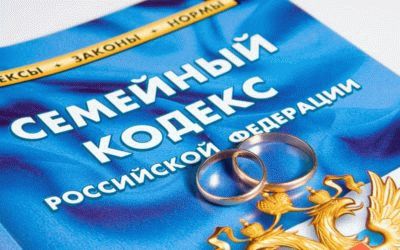Alimony from a military pensioner
Withholding and payment of alimony benefits is possible if the following conditions are met:
- One of the parents no longer lives with the minor child.
- The child support provider is a blood parent or has received such status through the adoption procedure.
- The child support provider does not want to voluntarily provide for his child.
If such conditions exist, then the fact that the income of the alimony holder is generated does not matter. Even the absence of official income cannot relieve a parent from fulfilling obligations and financially supporting their child. And if there is such income, then the obligation to pay cannot be canceled.
When deciding whether alimony allowance can be withheld in a particular case, it is necessary to review the list of income from which payments in favor of minors must be withheld.
This list includes:
- All types of salaries.
- Supplements to wages, permanent or temporary.
- Scholarship payments to students of universities and other educational institutions.
- Benefits paid to the unemployed.
- Compensation amounts paid upon receipt of disability.
- Pension accruals, with all additional payments, allowances and coefficients.
As can be seen from the above list, alimony from a military personnel is collected at the official level.
From which payments alimony from military personnel is not deducted?
Despite the fact that there is an obligation for a military father not living in the family to pay benefits, it is not withheld from all of the person’s income. This may be influenced by several factors.
According to the rules of enforcement proceedings, these include the following:
- Compensation in cash for harm caused to health;
- Money that is paid upon the loss of a breadwinner;
- Income from compensation to citizens for injuries and injuries incurred during the performance of service, payments to relatives after the death of a military man in the event that a person performing official functions dies;
- Compensation for suffering caused during service under conditions of radiation exposure.
So, families consisting of one parent and children need support (moral, material) from the other parent. Even if that parent is a military member, he or she is not exempt from this obligation. He fulfills this duty every month, and its volume is determined by the number of children.
Alimony from military pensions
Military personnel retire quite early. This is due to the risks that haunt them when fulfilling their duty and purely physical indicators. Therefore, many military pensioners, upon retirement, must support their minor children for several years.
The presence of pension payments allows you to pay child support as a percentage. According to the legislation of the Russian Federation, this percentage is equal to:
- 25% if the former military member has one needy minor dependent.
- The pensioner will have to give 33% to his two children.
- 50% is allocated to military pensioners and three children. If their number exceeds the number three, then the percentage cannot increase any further.
You will have to pay child support until:
- A dependent's coming of age.
- Death of the recipient.
- Death of the payer.
It is also possible for the parties to reach an agreement to stop payments.
Grounds for collecting monetary payments

The grounds and procedure for collecting alimony for all citizens of the Russian Federation, regardless of professional affiliation, are regulated by the Family Code of the Russian Federation.
Article 80 of the RF IC highlights only 2 points that are recognized as the basis for collecting alimony for a dependent child:
payments from one of the spouses without divorce, but in case of refusal to provide financial support for the child.
Article 80 of the RF IC. Responsibilities of parents for the maintenance of minor children
- Parents are required to support their minor children. The procedure and form for providing maintenance to minor children are determined by the parents independently.
Parents have the right to enter into an agreement on the maintenance of their minor children (agreement on the payment of alimony) in accordance with Chapter 16 of this Code.
Spouses can independently agree on the payment of alimony and enter into an agreement. If a party, in 99% of cases a man, refuses to provide financial support to his own child, then the situation is considered in court. Collection of alimony by court decision will be carried out in accordance with the writ of execution.
Cash payments must be made every month!
See the video for the reasons for paying alimony:
Ways to receive alimony from military pensioners
Alimony from the Ministry of Internal Affairs pension is collected according to the same schedules and standards as for other Russian citizens. According to current laws, payments made by the alimony holder voluntarily, without a writ of execution and the necessary recording, are not considered alimony. If the payer voluntarily gives certain amounts to his minor regularly, participates in his upbringing, and helps resolve situations that have arisen, then he fulfills his parental duty. But this state of affairs is extremely rare and more often one has to resort to more official measures to collect financial assistance.
In Russia, it is allowed to receive benefits for a minor child in the following ways:
The result of any procedure performed is the receipt of an official document that will help withhold benefits from the alimony payer.
According to the alimony agreement
Entering into a settlement agreement is the wisest decision parents can make after ceasing to live together. To compile it you will need:
- The desire of the father and mother to solve the problem peacefully.
- Reaching a general agreement on all points of the agreement.
- Establishing the amount of penalties corresponding to the legal threshold.
To sign the agreement, parents will need:
- Draw up a draft of the document itself. You can use a sample of a ready-made form as a basis, or you can turn to a lawyer for help.
- Collect the documents necessary for further registration.
- Pay the state fee for notarization of the document.
- Make an appointment with a notary at a conveniently located office. It doesn't matter if it's a government agency or a private one.
- After the notary checks all points of the agreement for compliance and certifies the paper, it acquires legal weight.

One of the advantages of this method of receiving alimony is the fact that parents can agree among themselves on the amount of payments and their regularity. Of course, this requires mutual understanding. Some alimony providers agree to make payments once a quarter or even once a year, and sometimes the ex-husband and wife can agree on a lump sum payment or a deed of gift for some property. This can be done, but only in the name of the dependent and with mandatory registration of the procedure.
By the tribunal's decision
In contrast to a voluntary agreement, the courts are guided when assigning alimony benefits more by the needs of minors, the capabilities of the payer, but not at all by his desires.
If the alimony provider has no desire to help his child, the second parent who lives with the minor may appeal to the court.
To begin legal proceedings you will need:
- Write a petition regarding the appointment and further collection of alimony payments from the defendant. The claim should be filed in the magistrates or district court. The choice of authority depends on the amount of claims.
- Complete the required package of documentary evidence.
- Register the collected materials with the court secretariat.
- Wait until a review date is set.
- Appear in the courtroom at the appointed time and confirm the stated requirements.
- Receive the judge's decision in paper form.
Options for collecting alimony from a military personnel pension
In accordance with the provisions of paragraph 2 of Decree of the Government of the Russian Federation No. 841, alimony payments can be withheld from all types of pension benefits of a citizen , and, therefore, from a military personnel pension. Money is collected from all additional payments, existing allowances and other things, regardless of the reason for which the existing amount of pension benefits is established.
According to the laws of the Russian Federation, alimony is paid as a certain share of all available official income of a citizen.
The procedure for collecting alimony or arrears thereon is described in Federal Law No. 229 of October 2, 2020, as well as Chapter No. 17 of the Family Code of the Russian Federation.
The citizen’s employer must independently withhold alimony payments from the citizen’s salary or other official income, and also transfer the funds to the recipient of the payments within three days . Responsible for the calculation and transfer of alimony from a retired citizen is the Pension Fund or specialized funds of the Ministry of Internal Affairs of the Russian Federation.
Alimony from a military personnel pension is calculated according to the same schedules and standards that are established for civilians.
According to current legislation, payments made by a citizen independently in the absence of an appropriate executive document and the necessary recording cannot be recognized as alimony payments. Voluntary assistance to children is only the fulfillment of the civic duty of a parent.
obtain the right to pay alimony in the following ways:
- By concluding a settlement alimony agreement.
- By filing a claim in court.
In relation to military pensioners, no exceptions to the general rules have been established , and alimony payments are withdrawn according to the generally accepted collection procedure. If the decision to pay alimony was made by a citizen before his retirement, the obligations do not cease upon reaching retirement age.
The reason for assigning payments is the presence of minor children who do not live in the same territory as the citizen after the divorce process, or the refusal of a parent who is a military pensioner to fulfill his duties to provide for the child.
Agreement between parents
A settlement agreement can be drawn up if the following conditions are met:
- If the father and mother of the child want to resolve the issue peacefully.
- Agreements were reached on all essential points of the agreement.
- The amount that will be deducted from income fully complies with the requirements of the legislation of the Russian Federation.
Read also: Group 3 disability pension
To sign the agreement you will need:
- Draw up a preliminary draft of the document using a ready-made form or turning to lawyers for help.
- Collect the necessary package of documents that will be required for further registration.
- Make an appointment with a notary.
- Pay the state fee for certification of the document by a notary.
- On the appointed day, visit a notary and have the document certified. After this, the agreement will become legally binding.
The main advantage of such a settlement of the issue of alimony payment is the ability to independently agree on the amount and frequency of payments .
By court decision
If it was not possible to resolve the dispute peacefully, it is necessary to file a claim in court demanding the recovery of funds from the responsible citizen. However, it is worth considering that the state will primarily be guided not by the wishes of the payer, but by the needs of the child and the capabilities of the citizen himself. If a parent who does not live with the child voluntarily does not want to fulfill his or her obligations to provide financial support for the minor, the other parent may apply to the court for help.
To initiate consideration of a case you will need:
- Draw up a petition for the appointment and subsequent collection of alimony from the defendant.
- Send an application to the magistrate or district court (the instance is selected based on the amount of claims).
- Collect documents and evidence necessary to consider the case.
- Submit materials to the secretariat and register them.
- Receive a notification with the date of consideration of the case.
- Attend the meeting on the appointed date and confirm your requirements.
- Get a court decision.
Next, the writ of execution must be submitted to the accounting department of the defendant’s employer, after which the payment of alimony payments will begin.
Amount of alimony by court decision
Is alimony deducted from a military personnel pension? The answer is clear - yes, without fail. But their size is determined solely by law and depends on two main indicators:
- needs of the minor,
- the amount of pension benefits.
When withholding alimony for a minor, the accountant needs to know from which income the assigned amount can be calculated and from which it is prohibited.
Let's start with the fact that the benefit can be taken as a percentage of what you receive or as a fixed amount tied to the cost of living in the region. As mentioned earlier, most often alimony from a pension is withheld as a percentage, but if for some reason this amount was fixed, then when deducting it, no attention is paid to the source of the monthly pension payment.

If the calculation is in percentages, then they are taken from the amount:
- Insurance pension.
- Various pension benefits.
- Bonuses paid monthly, quarterly or annually in addition to the assigned pension benefit.
An exception to the withholding of alimony payments are amounts calculated as:
- Health compensation.
- State-level benefits to support victims of natural and emergency situations.
- Funeral payments.
- One-time assistance to support families in special situations.
Typically, the deduction of alimony from pensions is fairly uniform, since the benefit itself is relatively stable.
Amount of alimony
The amount of alimony directly depends on the number of minor children the payer has, their needs, as well as the size of the citizen’s pension benefit.
If payments are calculated as a percentage, then they are calculated from the following income:
- Insurance pension.
- Additional pension benefits.
- Monthly, quarterly and annual bonuses paid as a bonus to the assigned pension benefit.
An exception may be funds that were accrued as:
- Compensation for the state of health of a citizen.
- State benefits received by him as support for victims of emergency situations.
- Payments for the funeral of relatives.
- Amounts transferred as financial assistance to the payer’s family.
The amount of alimony established for a military pensioner is regulated by the norms of Articles 81 and 83 of the Family Code of the Russian Federation:
- For one child, the payment will be 25% of the citizen’s official income.
- For two children, an amount of at least 1/3 of income is taxed, that is, 33%. Children can be born in several marriages, and for each of them, accordingly, 16.5% of the payer’s income will be allocated.
- If there are three or more children, 50% of the income is withdrawn from the responsible citizen.
Read also: Survivor's pension after reaching adulthood
The amount of the percentage withholding can be either increased or decreased by court decision . The basis for this may be exceptional circumstances that will not allow the parties to fully use the provisions of Article 81 of the Family Code of the Russian Federation.
The judge may take into account:
- financial situation of the plaintiff and defendant;
- the number of minor children whose father or mother is the defendant;
- the need for additional expenses for a child;
- the recipient’s inability to carry out effective work activities;
- obtaining disabled status by one of the participants in the case.
Changing the amount of alimony in relation to one of the existing children cannot affect the interests of other persons who are dependent on the payer. Even if alimony payments for the first child were increased to 20%, payments for the second will not decrease and will still be 16.5%.
The procedure for collecting alimony
The alimony recipient has the right to use one of the three proposed options:
- Present the received executive document to the Pension Fund at the place of registration of the payer. There, based on it, monthly deductions will be made, which will be transferred to the specified bank account of the recipient.
- Start enforcement proceedings in the FSSP. To do this, within three years after the decision is issued, you must contact the bailiff service and write an application to begin the proceedings.
- Leave the document without movement if the alimony payer is ready to make the necessary monthly payments himself. It is better to do this officially by post or by transfer to the recipient’s bank account.
Any method initially selected can be changed later.
Is alimony deducted from a military personnel pension?

The family legislation of the Russian Federation provides for two options for collecting alimony from military pensions: concluding a voluntary agreement between parents, which specifies the amount of monthly payments, and awarding alimony obligations as a result of legal proceedings. Regardless of whether a serviceman receives a full salary or only a pension, he is not exempt from paying alimony.
Is it possible to receive child support from a military personnel pension?
Ex-wives are interested in whether alimony is withheld from military pensions? It must be assumed that there are several types of payments assigned to the military. The standard pension is subject to alimony collection. Its size doesn't matter.
In certain situations, a citizen may qualify for additional payments due to the loss of a breadwinner (provided that the military man was a dependent). Such money is not taken into account when deducting alimony (clause 10 of Article 101 of the Federal Law “On Enforcement Proceedings”).
Military personnel may be injured due to participation in hostilities. According to the law, they are entitled to assistance from the state. It is also not a basis for the bailiffs to withhold alimony. But this does not mean that the debt will not be claimed from other sources.
A military man in service can sell property he does not need (country real estate, vehicles, land). When a transaction is one-time in nature, it is not included in income. Accordingly, alimony cannot be recovered from these funds.
From what income is maintenance paid?
The law states that alimony is withheld from most periodic payments due to a military personnel. This includes salary (including contract remuneration), bonuses for ranks, and other types of compensation.
Pensions paid due to age and in connection with the performance of military duties by a citizen are also included in the range of income not exempt from alimony. Deductions from such payments are made on a general basis.
If a military pensioner went into the reserve and started a business, alimony is paid from the income received from the business. It is defined as the difference between revenue and costs of running your own business.
Working military pensioner
Alimony is withheld both from payments related to wages and from the pension received. However, not all funds provided by a military unit are subject to deduction. For example, what has been said concerns money allocated for a business trip.
For a military pensioner who works, alimony is withheld in two places. At the place of work (service), the accounting department is responsible for translations. In terms of pensions, actions regarding payments are carried out by the Pension Fund body.
When funds for child support are sent from both salary and pension, the final amount may worsen the financial situation of the payer. Therefore, he has the right to initiate a reduction in alimony.
Features of a military pension
The “military serviceman” status is granted to employees of the RF Armed Forces, customs, Ministry of Internal Affairs, FSB, Civil Defense, etc.
Military personnel have the legal right to retire early. In fact, they can become pensioners at the age of 35. Preferential length of service includes the years during which the service took place:
- in high mountain areas;
- in conditions of testing nuclear weapons;
- when eliminating the consequences of an emergency;
- with participation in hostilities.
A pension is also awarded as a result of becoming disabled. However, with this type of benefit the obligation to provide financial support for children is not canceled, because disability is not a reason to refuse to pay alimony.
You should know! Military retirees can be employed in any civilian position. In such cases, alimony is withheld from pensions and earnings.
The procedure for collecting alimony from military pensioners
Alimony refers to compulsory payments from one person. The funds have a designated purpose; they are transferred to provide for and support a child or disabled relative. The Family Code of the Russian Federation defines two ways of collecting alimony:
- Voluntary. The parties (payer and recipient) sign a settlement agreement, which indicates how much and in what order payments will be made. The document must be certified by a notary. Since this agreement is a voluntary decision, a citizen who is not legally obligated to do so can perform the functions of the payer. There are often situations when children left without parents are paid alimony by their adult able-bodied relatives.
- Forced. If parents cannot agree on child support payments or one of them deliberately refuses to transfer money to the child, the issue is resolved in court. The recipient files a statement of claim in which he sets out the requirements against the defendant. Experts recommend contacting a professional lawyer for family disputes, whose services will help improve the success of the case in court. He will collect the necessary documents, draw up and file a petition to recover from the defendant the plaintiff’s attorney’s fees.
If the child’s parent does not communicate and hides himself and his income from the recipient of alimony, then the latter must submit a petition for the forced issuance of a certificate of pension accruals for the military personnel.
It is important to know! If the child’s birth certificate does not contain information about the father, then the procedure for collecting child support becomes more complicated. In such cases, the court decides to establish the paternity of the person whom the child’s mother forces to transfer funds for his maintenance. The defendant is ordered to undergo mandatory genetic testing.
Clause 3 of Government Resolution No. 841 of July 18, 1996 states that deductions are made from all types of income that military personnel receive permanently.
Procedure for issuing alimony
At the request of the parent in whose favor the deduction was made, alimony amounts can be received either at the cash desk of the relevant institution where the military serviceman who is obligated to make alimony payments works, or transferred to a bank account, or sent by the accounting department by postal order. However, it must be taken into account that many military units operate in closed areas, so receiving withheld alimony payments from the company’s cash desk is not always possible.
To determine the procedure for receiving alimony payments, the parent-collector must submit to the accounting department of the military unit (or other institution where the military serviceman paying the alimony works) a corresponding application about where he will receive withheld alimony in the future. This application indicates the bank details or postal address of the alimony claimant.
All financial costs associated with bank or postal transfer of alimony payments are also deducted from the income of the military personnel paying alimony.
There are cases when the address of the recipient of alimony payments is unknown to the accounting department and the payer himself. In this situation, the employing institution must still withhold alimony, notify the bailiff about the current situation and transfer the withheld amounts to the deposit account of the court located at the location of the employing institution.
Termination of alimony obligations for military personnel
If alimony payments are made by agreement of the child’s parents, the serviceman is exempt from further alimony payments if:
- one of the parties has died (either the serviceman himself or the child in whose favor payments were made);
- the alimony agreement concluded by the parents has expired;
- there are grounds for termination of payments that are expressly provided for in the agreement itself (for example, a condition is stipulated that payments will stop when the child graduates from college).
Payments of alimony payments collected from a military serviceman in court must stop in the event of:
- the child of a military serviceman reaches the age of majority;
- children of a military serviceman acquire full legal capacity until adulthood;
- adoption of a child of a military man, for whose maintenance alimony payments were withheld, by another person;
- recognition by the courts of restoration of working capacity or lack of need for assistance from the citizen receiving alimony;
- the entry of a disabled ex-spouse who is the recipient of alimony payments into a new marriage;
- death of the recipient of alimony payments, or the death of a military serviceman obligated to pay alimony.
This is interesting: How many pensions are due to the cleanup workers of the accident at Chaes
Who is entitled to alimony from a military personnel pension?
In ch. 13, 14 of the RF IC provides a list of citizens entitled to receive alimony:
- minor children;
- disabled children over 18 years of age;
- spouses who cannot work and support themselves;
- pregnant wives, as well as mothers of children under 3 years of age;
- spouses caring for a disabled child;
- men and women who have lost the opportunity to work while married or within 5 years after divorce;
- spouses who retired within 5 years after the divorce of a long-term marriage.
In Russian judicial practice, there are quite a few cases where men transfer a percentage of their income not only to their children, but also to their ex-wives.
Amount of alimony by court decision
The amount of the defendant’s monthly payments is directly dependent on:
- the amount of pension benefits;
- the presence of other sources of income for the serviceman;
- stability of receiving funds.
If these factors change for a retiree, the amount of alimony payments may become higher or lower.
The number of children for whose maintenance a military pensioner is obliged to contribute also has a significant impact on the amount of alimony. For one minor child, he must pay 25% of his pension and other income, for two – 33% , for three or more – 50% .
Alimony can be collected both as a percentage and as a fixed equivalent, which is tied to the level of the subsistence minimum established in the region of residence of the family.
The court's decision on the amount of alimony payments may not be final. If the recipient or payer needs to change the amount of payments, they have the right to file a claim.
For example, a military pensioner whose income has decreased may ask the court to reduce the amount of alimony. He also has the right to review the amount of payments if the second parent with whom the children live has improved their financial situation. To increase the amount of alimony, the supporter of minor children, on the contrary, is required to prove a decrease in his income level or an increase in the military pension of his ex-spouse.
For your information! An essential condition for changing the amount of alimony is a change in the marital status of the payer. If he has children from his next marriage, he has the right to demand a reduction in the amount of alimony payments.
The same applies to situations where military pensioners take care of relatives who have lost the opportunity to work or have become incapacitated. If the payer increases the number of dependents, the amount of alimony may decrease, since the total amount of payments should not exceed 50%.
Retention amount

- 0.25 shares of the alimony provider’s income are transferred for the maintenance of 1 minor child;
- for the maintenance of 2 children, a serviceman pays 0.33 shares of his income;
- if a serviceman has 3 or more children, then the amount of payments is exactly half of his regular earnings.
Article 81 SK. The amount of alimony collected from minor children in court
- In the absence of an agreement on the payment of alimony, alimony for minor children is collected by the court from their parents monthly in the amount of: for one child - one quarter, for two children - one third, for three or more children - half of the earnings and (or) other income of the parents.
- The size of these shares may be reduced or increased by the court, taking into account the financial or family status of the parties and other noteworthy circumstances.
Reference! It is possible that a party will be required to pay 70% of total income.
Watch a useful video about the amount of alimony withholding:
What to do if the alimony payer disappeared?
When an ex-husband moves out of military retirement and does not notify the mother of his children about this, she should contact the bailiffs. If the father’s address is not known and there is no registration, representatives of the FSSP send control and writs of execution to the judicial authority. Then the judge makes an appropriate decision, which is transmitted to the military registration and enlistment office, and from there to the Pension Fund. Alimony payments from a military personnel pension will be made automatically. In addition, the ex-spouse will be forced to pay off the resulting debt that accumulated during his evasion of parental responsibilities.
Articles recommended for you:
Other income of a military personnel subject to alimony
Military personnel and military pensioners, regardless of their position, are obliged to participate financially in the lives of their children. Therefore, the RF IC does not distinguish between military and other persons when fulfilling obligations to support minors.
Alimony for military personnel is withheld:
- from the allowance of privates, junior and senior officers;
- payments due to a military man, depending on his rank;
- bonuses and various allowances;
- benefits and other social guarantees that may be provided upon transfer of a military personnel to the reserve;
- from pension payments to military retirees.
The fulfillment of alimony obligations by military and civilian persons does not differ from each other. The legislator does not care which citizen is liable for alimony. The primary task of the state is to protect the rights and legitimate interests of the child, including the rights to child support from one or both parents.
From what income is maintenance paid?
In accordance with the law, child support money is collected from all types of permanently earned income of a military parent:
- From the amount of salary calculated according to rank, taking into account all allowances and bonuses.
- With monetary allowance (allowance).
- Monthly benefits and other payments accrued in the event of dismissal from service into the reserve.
- With long service pension.
- With additional payments (reimbursement of rations) for persons undergoing military service.
In addition, according to Article 101 of Federal Law No. 229-FZ, alimony obligations are paid from:
- Payments received as a result of damage caused to health.
- Compensation from the federal and local budgets or constituent entities of the Russian Federation to citizens injured in radiation or man-made disasters.
However, there are exceptions to this list. Such incomes are:
- A pension, the right to which was obtained as a result of the loss of a breadwinner, will not be considered income subject to alimony, since such a benefit is exclusively social in nature.
- Payments received in the event of injury in the performance of official duties of a person obligated to pay alimony.
A combat veteran's pension is a social benefit and is also not included in the base for calculating alimony payments.
Ways to withhold alimony from a military personnel
The obligation to pay child support arises in the presence of a writ of execution.
Alimony can be:
- Voluntary. The alimony payer independently determines his obligations for financial assistance to the child. There are several ways to confirm the fulfillment of obligations - sending alimony to a bank account indicating the purpose of payment or issuing a receipt from the recipient about receipt of funds for the child.
- Voluntary-compulsory – concluding an agreement on material support for the child. Parents independently specify all the circumstances of the contract - subject, validity period, payment procedure, details for transfer, amount of financial assistance, responsibility of the parties, etc. A mandatory condition for the validity of the contract is its notarization. If a document is not registered with a notary, it is considered void and cannot be executed.
- Compulsory – court proceedings. The statement of claim may be considered in a simplified manner with an examination of the evidence provided by the plaintiff. In this case, a court order is issued. If the defendant does not agree with the decision, the dispute is considered in accordance with the general procedure. When considering a dispute about alimony in a general manner, the court makes a decision to refuse or satisfy the applicant’s demands.
The executive documents are:
- court order;
- performance list;
- agreement on payment of alimony.
Regardless of the type of enforcement document, alimony must be paid in full and on time.
The alimony worker retired and began to evade paying alimony?
In such a situation, the recipient of the payments must file a claim with the court regarding the procedure for calculating alimony in order to subsequently receive a writ of execution.
If, before retirement, a citizen paid alimony under an agreement concluded voluntarily, it is enough to apply with this document, a passport and an application to initiate enforcement proceedings to the FSSP. Papers are submitted at the place of residence of the defaulter.
Didn't find the answer to your question? Find out how to solve exactly your problem - call right now or fill out the form online: +7 (Moscow) +7 (St. Petersburg)
It's fast and free!
Termination of alimony payments
Payments for child support by military personnel are terminated on the general basis established by the family legislation of the Russian Federation. The application of any additional or other rules in relation to military personnel or military pensioners is not provided.
The grounds for termination of alimony obligations include:
- expiration of the agreement, if such a period has been established, otherwise when the child reaches the age of 18;
- death of one of the parties;
- the child's emancipation procedure;
- adoption of a child by a third party, who legally becomes one of the parents.
The grounds for termination of alimony payments can be established by agreement - the payment stops upon the occurrence of any of the events, including graduation from an educational institution, purchase of real estate for the child by the payer, etc. The agreement allows for greater opportunities for the parties, regardless of their situation.









